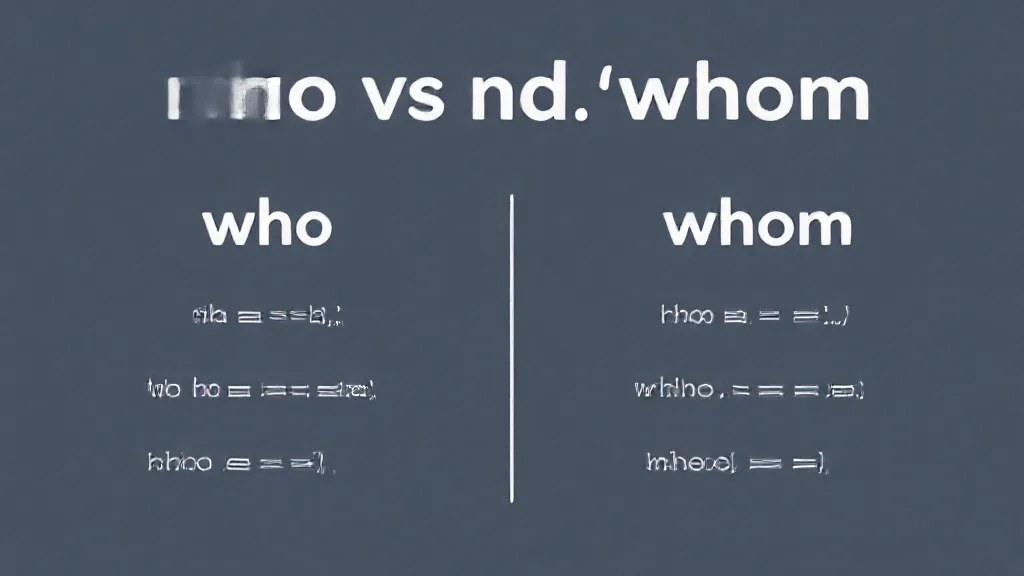Travel Tips
Lorem ipsum dolor sit amet, consectetur adipiscing elit.

Clarifying the usage and rules for "who" and "whom" in sentences
In the English language, the words "who" and "whom" often confuse learners and even native speakers. Understanding the distinction between these two pronouns is essential for mastering English grammar. "Who" is typically used as a subject pronoun, while "whom" serves as an object pronoun.
This fundamental difference in usage is crucial for constructing grammatically correct sentences and enhancing one's writing style.
The pronoun "who" is used to refer to the subject of a clause. For instance, in the sentence "Who is coming to dinner?" the pronoun "who" acts as the subject of the verb "is coming.
" To determine whether to use "who" or "whom," consider the role the pronoun plays in the sentence. If the pronoun is performing the action, "who" is the appropriate choice. This rule applies universally across various contexts, making it a reliable guideline for English speakers.
On the other hand, "whom" is used when referring to the object of a verb or preposition. For example, in the sentence "To whom should I address the letter?" the pronoun "whom" is the object of the preposition "to." This distinction is often overlooked in casual speech, where many speakers default to using "who" in all situations.
However, adhering to the proper usage of "whom" can elevate one's language proficiency and convey a deeper understanding of English grammar.
A common technique to determine whether to use "who" or "whom" involves rephrasing the sentence. If you can replace the pronoun with "he" or "she," then "who" is the correct choice.
Conversely, if you can substitute it with "him" or "them," then "whom" is appropriate. For example, consider the question "Who/Whom did you see at the party?" Rephrasing it as "Did you see he?" versus "Did you see him?" clearly indicates that "whom" is the correct option.
Historically, the distinction between "who" and "whom" has been a topic of debate among linguists and grammarians.
In the early 20th century, the usage of "whom" began to decline, especially in spoken English. This shift reflects broader changes in language use, where prescriptive rules are often relaxed in favor of more conversational styles. Nevertheless, understanding the traditional rules surrounding "who" and "whom" remains valuable for formal writing and communication.
In academic and professional settings, the appropriate use of "who" and "whom" can significantly impact the clarity and professionalism of your writing. For instance, in a research paper or business correspondence, using "whom" correctly can demonstrate attention to detail and a strong command of the language. This level of precision is often expected in formal contexts, where grammatical accuracy is paramount.
Moreover, the evolution of language continues to influence the usage of "who" and "whom." Many modern style guides suggest that "whom" is becoming less necessary in everyday communication. However, individuals aiming for linguistic precision should still familiarize themselves with both pronouns and their proper applications.
This knowledge can enhance one's writing skills and ensure effective communication across various platforms.
In conclusion, the differences between "who" and "whom" hinge on their grammatical roles within a sentence. While "who" serves as a subject pronoun, "whom" functions as an object pronoun.
Understanding these distinctions, along with practical strategies for determining which pronoun to use, can significantly improve one's command of English grammar. By mastering the use of "who" and "whom," individuals can communicate more clearly and confidently in both spoken and written forms.